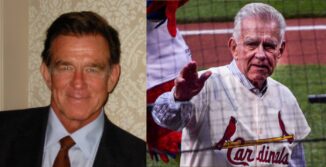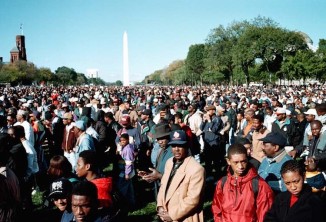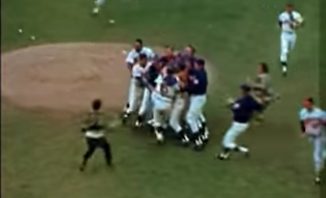101 years ago today, the Disney Brothers Cartoon Studio was founded by Roy and Walt Disney. Its name was soon changed to The Walt Disney Studio, for the Missouri animator who five years later came up with the idea of a mouse character that would become the Mickey Mouse cartoon—the company’s signature mascot, and one of the world’s most recognizable characters. The ‘Disney’ studio grew to establish itself as a leader in the American animation industry with hits like Bambi and Snow White before diversifying into live-action film production, television, and theme parks. READ more… (1923)

It may seem strange to imagine, but the Walt Disney Animation Studios got their start producing silent, live-action, shorts featuring a child actress named Alice walking through a cartoon world. These “Alice Comedies” eventually led to the Disneys producing their first all-animated production, Oswald the Lucky Rabbit, for Universal Studios.
After a change in management attempted to force Walter Disney to accept lower advances for each Oswald short, Disney refused. Working in secret while the rest of the staff finished the remaining Oswalds on contract, Disney and his head animator Ub Iwerks led a small handful of loyal staffers in producing cartoons starring a new character named Mickey Mouse. And the rest, we say, is history.
More Good News on this Date:
- Oscar Wilde, Irish playwright, poet, and novelist best known for The Importance of Being Earnest and The Picture of Dorian Gray, was born (1854)
- The nurse Margaret Sanger, believing that women themselves needed to determine when to bear children, opened the first U.S. birth control clinic (1916)
- Benjamin Davis Sr. named the first African-American general in the US Army (1940)
- Anglican Bishop Desmond Tutu won the Nobel Peace Prize for his decades of non-violent struggle for racial equality in South Africa and against apartheid (1984)
- David Trimble and John Hume were awarded the Nobel Peace Prize for brokering the Northern Ireland peace accord (1998)
56 years ago, Yasunari Kawabata became the first Japanese author to win the Nobel Prize for Literature. In awarding the prize “for his narrative mastery, which with great sensibility expresses the essence of the Japanese mind”, the Nobel Committee cited three of his novels, Snow Country, Thousand Cranes, and The Old Capital.

Snow Country is a stark tale of a love affair between a Tokyo dilettante and a provincial geisha that takes place in the remote hot spring town. This novel, like others Kawabata wrote, vividly depicts the psychic cost of aesthetic appreciation, and Edward Seidensticker, a noted scholar of Japanese literature whose English translation of the novel was published in 1956, described the work as “perhaps Kawabata’s masterpiece.”
In a 2015 review of Thousand Cranes for The Japan Times, Stephen Mansfield pointed out the novel’s “beautiful language, obsessive sexuality and contempt for the era”, and the repeated juxtaposition of the “ugly and venal” with images of beauty, calling it “a work suffused with loneliness and disorientation at the failure of art, literature and even the tea ceremony to create a more ideal world.”
The Old Capital explores themes common to much of Kawabata’s literature: aging and decline; old culture in the commercial new Japan; the muted expression of strong yet repressed emotion; the role of accident and misunderstanding in shaping lives, told through the story of an orphan foundling trying to reconnect with biological family members. (1968)
And on this day in 1987, 18-month-old ‘Baby Jessica’ was freed from the bottom of an abandoned well in her aunt’s backyard in Midland, Texas after 58 hours. The rescue, attempted from 22 feet (6.7 m) above, proved much more difficult than anyone thought, with a plan to drill a parallel shaft through hard rock and then connecting across. She later became a special education teacher’s aid, and still lives in Midland today, calling her life a miracle. “I had God on my side that day.” Her rescue was portrayed in a 1989 TV movie, Everybody’s Baby: The Rescue of Jessica McClure. WATCH a video…
Happy 83rd Birthday to Tim McCarver, the American sportscaster and former pro athlete who was beloved among baseball fans.
An All-Star catcher, he played between 1959 and 1980, and started for the St. Louis Cardinals during three World Series championships, winning two—in 1967 and in 1964, when his tie-breaking home run in the 10th inning won Game 5. He caught two no-hitter games, and 121 shutouts during his career, ranking him 9th all-time among major league catchers.

After his playing career ended, McCarver became a brilliant broadcaster and color analyst for the game. He called a record 23 World Series and 20 All-Star Games, as well as season games for the Phillies, Mets, Yankees, and, most recently until the pandemic, with the Cardinals. He won three Sports Emmy Awards, and was inducted into the broadcasting wing of the Baseball Hall of Fame. WATCH his moving farewell during his final World Series for Fox… (1941)
He’s also the author of Tim McCarver’s Baseball for Brain Surgeons and Other Fans: Understanding and Interpreting the Game So You Can Watch It Like a Pro, and he recorded a musical album singing Selections From Great American Songbook.
29 years ago today, The Million Man March convened in Washington, DC. inviting a million “sober, disciplined, committed, dedicated, inspired black men to Washington for a day of atonement.”

Speakers included Rosa Parks, Stevie Wonder, and Maya Angelou—and the gathering did a lot of good: In the weeks that followed the call by organizer Louis Farrakhan for black men to return home immediately and take care of their families and neighborhoods, one and a half million black men registered to vote and a flood of 13,000 applications were filed to adopt black children.
The National African American Leadership Summit, a leading group of civil rights activists and the Nation of Islam (lead by Louis Farrakhan) worked with scores of civil rights groups, including many local chapters of the NAACP, to organize a self-help rally and, at the same time, “convey to the world a vastly different picture of the Black male”. That picture was further enhanced exactly one year later when the film Get on the Bus, directed by Spike Lee, was released portraying a group of men traveling to the March. (1995)
And 55 years ago, New York’s underdog baseball crew ‘The Miracle Mets’ won the World Series in just 5 games, a romantic triumph over a heavily-favored Orioles team.
 In the seven previous seasons, the Mets had never finished higher than ninth place and consistently lost one hundred games. Yet, starting in May, the Mets delivered an astonishing record of 82–39. They won 38 of their last 49 games, finishing eight games ahead of the Cubs—one of the largest turnarounds in MLB history.
In the seven previous seasons, the Mets had never finished higher than ninth place and consistently lost one hundred games. Yet, starting in May, the Mets delivered an astonishing record of 82–39. They won 38 of their last 49 games, finishing eight games ahead of the Cubs—one of the largest turnarounds in MLB history.
What lifted the “Amazin‘ Mets” was their pitching staff, which led the MLB with 28 shutouts. To put that in context, in the past 100 years only one team tallied more shutouts than the 1969 Mets. Led by pitchers Tom Seaver (who won 25 games en route to the Cy Young Award) and a young Nolan Ryan, they hurled a stunning 10 shutouts in 25 games in September. Because the 1969 Mets were also one of the two worst-hitting teams in a half-century to ever win the World Series, calling it a miracle is not far-fetched. WATCH a tribute… (1969)
SHARE the Milestones, Memories, and Moments…





















[…] post Good News in History, October 16 appeared first on The Good News […]
[…] By Good News Network […]
[…] By Good News Network […]